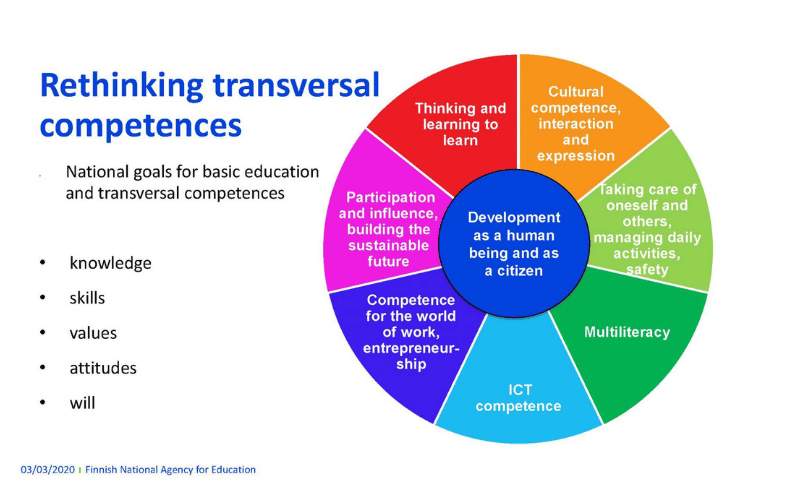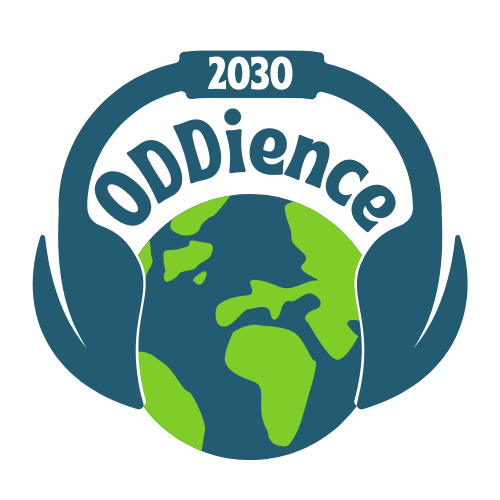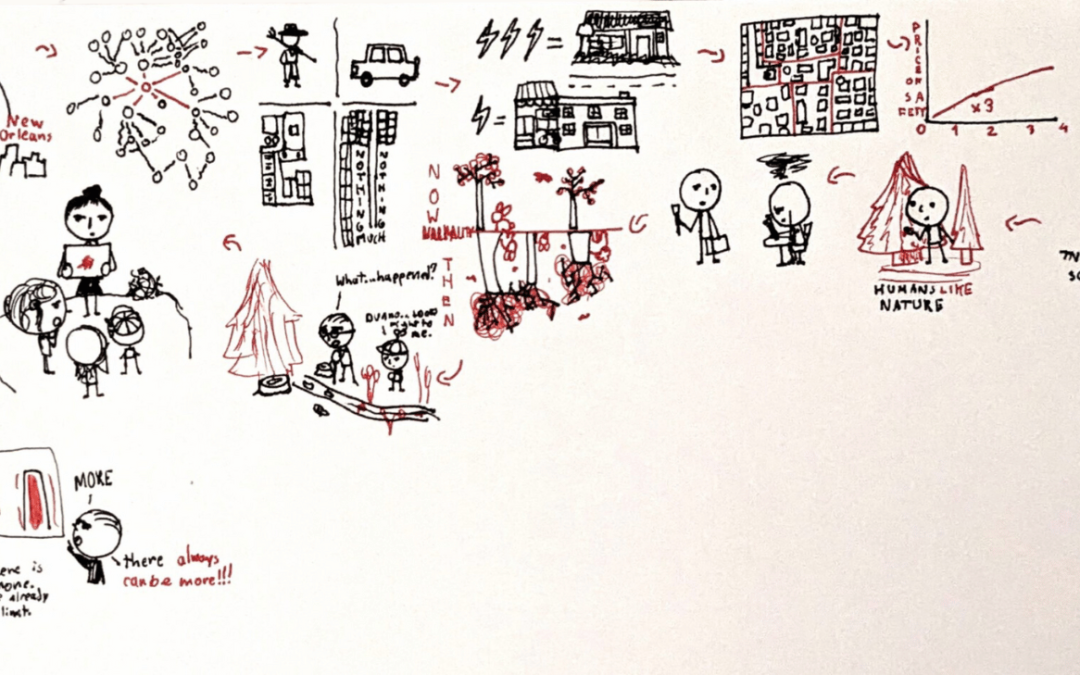By Andreea Gatman, Act On Learning
Teaching with 21st-century skills serves the vision of education
I participate in the Oddience2030 kickoff meeting from the other side of the Atlantic, while partners gather in Bordeaux France, I am driving towards Pensacola, Florida USA to meet Healthy Gulf climate trainer Christian and have a dialogue around the opportunities of teaching through climate change.
The reflection process
These thoughts are part of the reflection process as I listen to Christian and allow a deeper consideration of how we teach through climate change, and I am attempting to follow the place-based learning in Bordeaux via the WhatsApp project group.
Sustainable starts with the inner process of the teacher…. “bending the beam of attention toward oneself”, Otto Scharmer (MIT, U-school).
When it comes to teaching with and through climate change as facilitators, to balance economical (financial) considerations and ethical (social) implications as a thinking process and skill. Reimagining teaching with ethics as part of highly critical and scientific thinking if we consider “this generation will use science for everyday decision making, more than any generation before them in their everyday life choices” (Lonka,2018).

I am also once more returning to the idea that teaching with 21st-century skills serves the vision of education for “citizens able to make democratic decisions with respect to humans and more than humans rights”.
And that is the invitation for everyday learning and teaching interactions that allow the decision-making process.
Christian, invites a reflection on the biophilia “hypothesis suggests that humans possess an innate tendency to seek connections with nature and other forms of life”, a term proposed by Edward O. Wilson. Christian then self-inquires how “could we connect people to local, regional ecosystems? “Here, people interact a lot with fishing and hunting this is what they have been doing for generations”. My mind runs hence to the picture I added here from the teachers’ place-based learning in Bordeaux as I and Christian speak, to how teachers from different parts of the world together with the locals, experience the gulf area being changed.
How that impacts them, how do we move collectively, through such powerful climate data that comes to our awareness, allowing it to inform our decision making?

Picture shared from teachers’ place-based learning, in Bordeaux Nov 2024.
Back to Christian, and Pensacola Gulf, he mentions local (adult) people interacting with the environment, and nature daily, for them, it is easy to see changes in nature, to integrate as part of climate learning, they are “good ecology students”. Yet is there a way to connect the young people, if they were born in what is called a “shifted baseline”, if you do not have a memory of how amazing the coral reef that now is 98% dead was, or how this fish used to be this big and now the impact on oneself when looking at “the downsizing”, are you going to feel and raise to the urgency? Is this a barrier to learning?
There is the opportunity to teach with SDGs and 21st century skills, and practice integrative leadership skills as part of decision-making in the classroom, “holding both the urgency and the patience” ( Dr. Linda Hill, Harvard University).
As most of the issues will not be solved during our and young people’s human time, we have the opportunity to teach with human(e) muscle or what the UN agenda calls Inner Development Goals together with Sustainable Development Goals.

